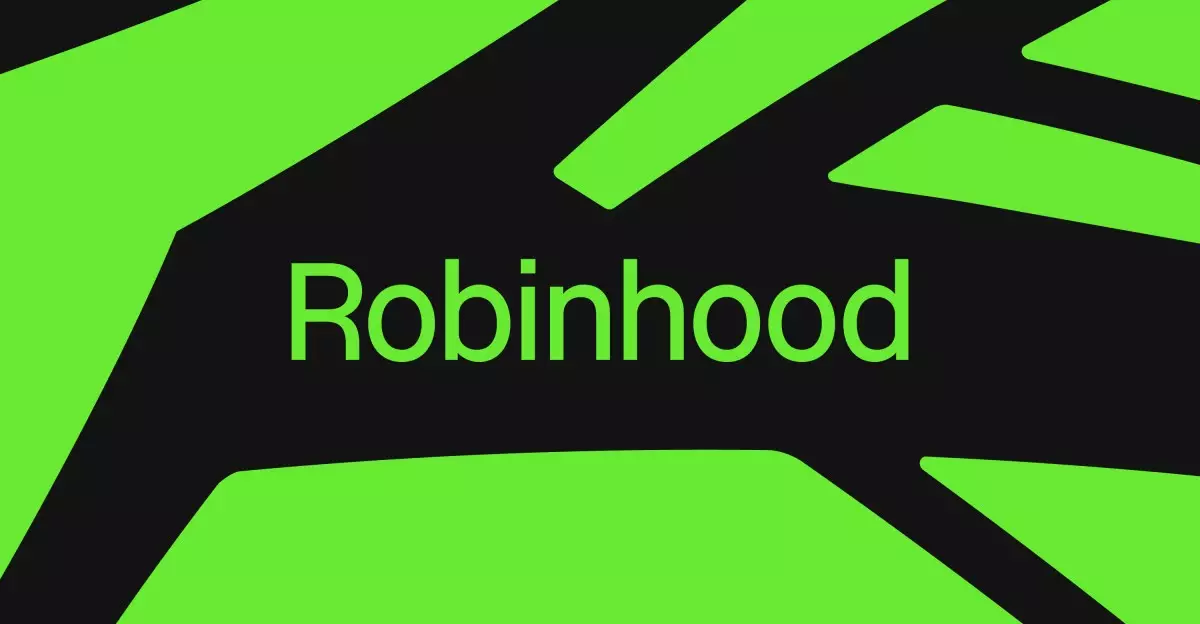In recent years, Robinhood has reshaped the landscape of personal finance and investment by challenging the traditional banking model. Initially recognized for its no-commission trading platform aimed primarily at young investors, the company is now setting its sights on becoming a comprehensive financial ecosystem. This ambitious pivot includes the introduction of Robinhood Banking, a cutting-edge online platform that will offer both checking and savings accounts exclusively for Robinhood Gold subscribers later this year. In a world where convenience often reigns supreme, Robinhood is determined to eliminate the conventional barriers associated with banking while capitalizing on its already extensive user base.
Robinhood Banking: A Game-Changer for Subscribers
When it launches, Robinhood Banking is poised to offer enticing features that promise to redefine online banking experiences. The platform boasts a remarkable 4% annual percentage yield (APY) — a figure that dwarfs what most traditional banks provide and a compelling lure for customers. However, it’s essential to note that Robinhood will not operate as a traditional FDIC-insured bank; instead, it will use “pass-through” deposit insurance, which mandates that funds are held in an FDIC-insured member bank, in this case, Coastal Community Bank. This setup is crucial for users who are accustomed to the level of security that traditional banks provide, albeit with a modern twist that reflects Robinhood’s digital-first ethos.
In addition to standard checks and savings accounts, Robinhood Banking intends to offer parents the ability to set up children’s accounts, catering to the next generation of investors. This forward-thinking approach aligns with the company’s strategy to appeal to users from all walks of life, especially those who are looking to teach their children the values of saving and investing at an early age.
Innovating Wealth Management
Alongside the banking features, Robinhood is launching Robinhood Strategies, a new wealth management platform that presents a mix of curated single stocks and actively managed exchange-traded funds (ETFs). This product, which has a competitive annual management fee of just 0.25% (with a cap of $250 for Gold members), creatively combines low-cost management with access to a diversified portfolio. As it shifts toward wealth management, Robinhood faces the challenge of continuing to attract users who may not yet feel comfortable navigating the complexities of investing. However, offering straightforward, cost-effective products places the company in a strong position.
Moreover, the upcoming introduction of “Cortex,” an AI-driven investment tool, further illustrates Robinhood’s commitment to innovation. Cortex aims to demystify market trends and stock movements, empowering users with the insights needed to make informed investment decisions. For the average user — particularly those newer to investment — this feature could provide a comforting sense of guidance in often turbulent markets. By actively addressing the educational needs of its customer base, Robinhood cultivates an atmosphere of engagement and empowerment.
Physical Cash Delivery: A Unique Proposition
Robinhood’s announcement of on-demand cash delivery to users’ doorsteps represents a bold marketing move that sets the company apart from both traditional banks and digital competitors. In an era where digital transactions dominate, offering a physical cash delivery service rekindles the age-old concept of brick-and-mortar banking but without the necessity of visiting an actual bank branch. While the logistics of this service may present challenges, such as geographic coverage limitations, the underlying idea connects with a yearning for convenience and accessibility that many modern consumers inherently favor.
A Vision for the Future
Ultimately, Robinhood’s evolution into a comprehensive financial platform serves as a case study for the broader transformation of personal finance segments. By continually integrating innovative features that cater to a digitally savvy audience, Robinhood isn’t just a competitor; it’s actively redefining banking conventions. What remains to be seen is whether it can maintain user trust while navigating its ambitious path. The stakes are high, but so are the potential rewards for both the company and its ever-growing customer base. As we move into this new era of financial innovation, Robinhood stands at the forefront, challenging the status quo and reimagining what a banking experience can deliver.


Leave a Reply